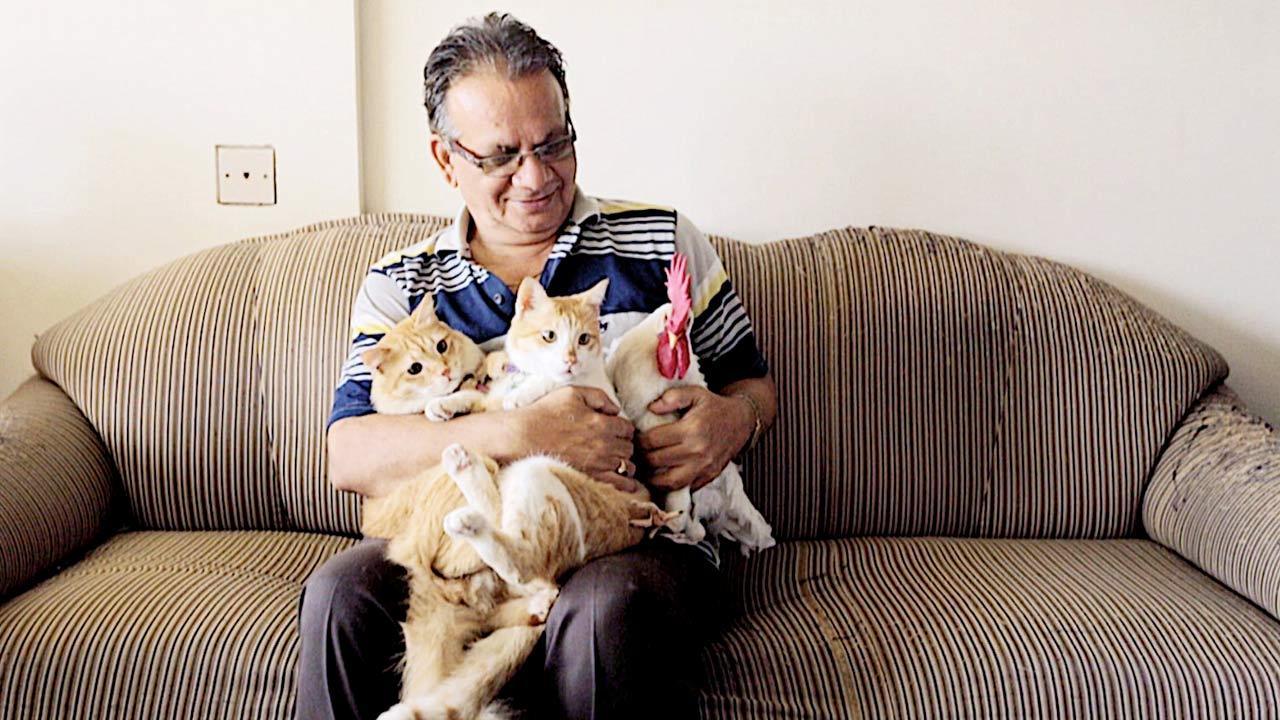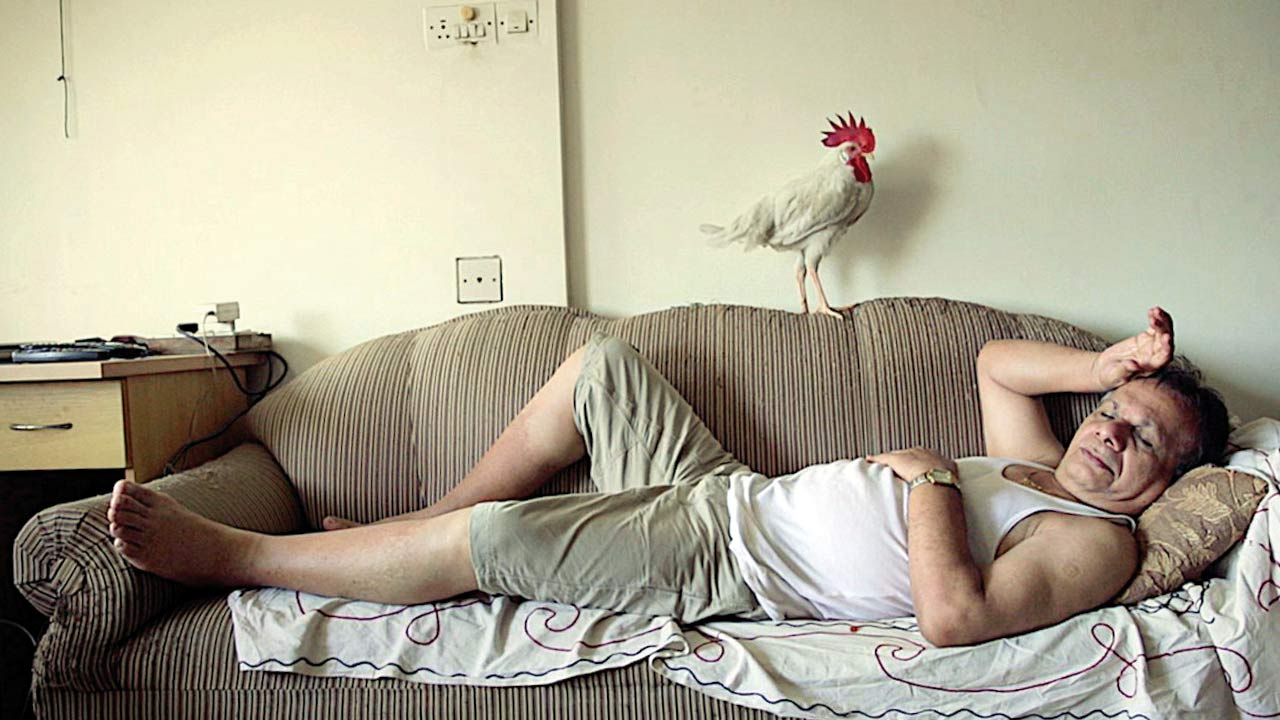With an absurd plotline and an unlikely hero who meets his final fate, a city-based film set for an international festival screening next week makes us question our sensibilities around food

A still from the film taken minutes before the bird scares Bharde out of his siesta
On a list of over 180 films at the Dharamshala International Film Fest, 2021, this writer chanced upon one ludicrous description of a documentary short called Tungrus. How Mumbai hangs between anticipation and collapse perennially intrigues her. And picturing a rooster in a two-bedroom apartment cohabiting with four humans and two cats, made her imagination stretch even further.
ADVERTISEMENT
Tungrus, the film that will be showcased at Shockfest in the United States, is an amusing tale about a rooster bringing chaos to its patrons — and unavoidably questioning our dynamic relationship with food and animals. Filmmaker Rishi Chandna tells us the idea for the film was the product of a coincidence and his liking for the absurd. “The younger son of the Bharde family used to be my wife’s colleague. One day, she returned from the office, and told me how Sameer (the son) complained of absolute craziness at home for the past six months. His father had got a chick for their cats to play with, but now, having grown into a big rooster, it was turning their lives upside down.” The absurdity attracted him and he pursued the story for the many themes and metaphors he spotted in its potential. But neither wife Celestine nor her husband Nusrat Bharde see the whole thing as an atypical occurrence. Are people at the centre of confusion oblivious to their position? “Until Rishi went ahead with the film and we came to know of responses from all around the world, we hadn’t seen it as something out of the ordinary,” they share. Bharde was brought up in a village and has grown up around fowls. The pecking and cawing is entrenched amid his fondest childhood memories. So, getting a chick home and not expecting it to be a bother isn’t contrary to his nature. In the film too, he is seen as the patriarch who functions on fancy. Celestine pointedly says that having pets is a decision her husband makes, the related chores are for her; the woes are shared by her two sons and their house help.
 Nusrat Bharde with Ginger, Garlic and the rooster
Nusrat Bharde with Ginger, Garlic and the rooster
The only task that Bharde deftly delivers is catching the bird. He chases her down the corridor, around the table and across the sofa only to be met with disappointment. That’s where the title comes from, the mother maintains: “Every time he goes after the bird, I’m reminded of Naseeruddin Shah’s character, Tungrus, in Mandi. His crouched gait makes for a hearty laugh.”
Apart from the constant pooping and cawing, the rooster was never a worry for their neighbours. Bharde says, “My cats, Ginger and Garlic, were terrified of the bird, but the people in our building have never protested. We felt guilty as it would caw at any hour of the day.” And now that the hero of Tungrus is gone, Celestine admits to missing his antics at times. She agrees that although a novel eccentric choice for a pet, it had run its course.
 Rishi Chandna
Rishi Chandna
But what did Chandna especially want his audiences to make a mental note of? He pauses for a minute; apart from how the father and the sons have diametrically opposite solutions for their rooster trouble — the former wants to kill and eat it and the latter wants to give it away — he wanted the allegory of the outsider to appeal to the viewers. “The way we react to things we think are alien and don’t belong to our immediate environment, mirrors what’s happening in India. I think that’s a valid subtext in the film,” the director adds. The hero of Tungrus was handed over to a local meat shop. But does the kind of feedback he received as the subject for a documentary make his humans regret his passage? They say the “bada level pe dhamaal” is rewarding, but the pet was too much.
Log on to shockfilmfest.com
 Subscribe today by clicking the link and stay updated with the latest news!" Click here!
Subscribe today by clicking the link and stay updated with the latest news!" Click here!







